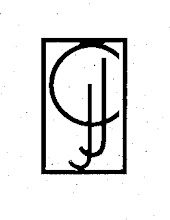Though the subject matter of two of those books—vision loss and parenting a disabled child—seem out of step with my usual library choices, it turns out that they’re not. At least, the one I’ve finished reading isn’t.
The Boy in th
 e Moon: A Father’s Journey to Understand His Extraordinary Son is a loving, brutally honest account of the moment-by-moment challenges parents with severely disabled children confront (in this case, a kid with cardiofaciocutaneous syndrome). The “father” in the title is journalist Ian Brown, who reveals his tale in engaging, unsentimental prose.
e Moon: A Father’s Journey to Understand His Extraordinary Son is a loving, brutally honest account of the moment-by-moment challenges parents with severely disabled children confront (in this case, a kid with cardiofaciocutaneous syndrome). The “father” in the title is journalist Ian Brown, who reveals his tale in engaging, unsentimental prose.Brown didn’t write his memoir to gain our sympathy. Though I’m sure he could list any number of reasons for sharing his life so intimately with the world, the one that stood out to me was his quest to know whether his son’s life (and, thereby, the lives of all extremely disabled individuals) has purpose, meaning, value—and whether Life, in turn, offers purpose, meaning, and value to his son.
This is the $64 million question, isn’t it? It threads through everything I read and everything I think about (National Chicken Month, for instance), even when I don’t want to think about it. I would guess you think about it, too.
Ignoring the usual “God’s Will–God’s Angel” explanation for disabled children, Brown explores the science behind genetic mutations and discusses historical and current perceptions of disabilities. His encounter with author and scholar Gilles Le Cardinal is the book’s payoff. If you’ve ever worried or wondered about quality of life for people who have extreme disabilities, or if you’ve ever cast that proverbial stone at a family who sent a disabled relative to a group home to live, Le Cardinal will change your outlook. The Boy in the Moon is worth reading if only to understand Le Cardinal’s research and teaching philosophy.
The Boy in the Moon reminds me—as have Mary Oliver’s nature poems and Jeffrey Moussaieff Masson’s The Pig Who Sang to the Moon—that it’s easy but not appropriate to filter life through one’s personal experiences and cultural norms. Neither my culture nor anyone else’s is the standard by which the rest of the world should be measured. Whether we’re regarding the lives of humans, animals (nonhuman), plants, or organisms, we should honor this truth from Brown’s memoir:
“There’s no lesser than. There’s just different from.”
—Bruce Blumberg, geneticist
—Bruce Blumberg, geneticist



No comments:
Post a Comment